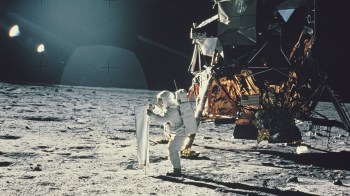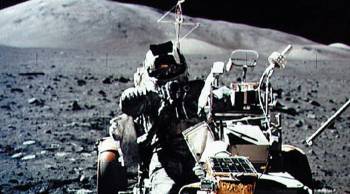YouTube 2006: A bit of Napster revisited
Share Now on:
YouTube 2006: A bit of Napster revisited
BOB MOON: When it comes to the Internet, the past is prologue. The evolution of what we were doing on the World Wide Web this year signals a revolution for the old-guard media. Marketplace’s Lisa Napoli has been looking into the new . . . and the not so new:
LISA NAPOLI: Hey, Bob.
MOON: Hey.
NAPOLI: You know, this last year I’ve been thinking a lot . . . every time this story happened I thought, “I’ve heard that story before. I’ve been down this road before. And I wanted to read you something that I found on my computer:
“This is a really cool idea that had no business model. And the only way it’ll ever have a business model — especially given all the copyright issues it bumps up against — is to sell itself out to the corporate interests.”
What company do you think I was talking about there?
MOON: Sounds like what we’ve been hearing about YouTube.
NAPOLI: It sounds a lot like You Tube. But it also sounds a lot like Napster. Remember Napster? Back in early 2000 Napster was a big sensation the way You Tube is a big sensation this year. There are a lot of similarities and differences, though.
MOON: Yeah, that was about downloading music, though. This is about looking at videos.
NAPOLI: Right, the difference is that now you can download videos, whereas six or seven years ago the technology wasn’t on the Internet to do that. But the similarities are there. The idea is that each of these companies were set up by rogue, nonmedia people and they’re giving the old-guard media a huge run for their money. They’re scaring the pants off them because they’re doing something the old-guard media can’t figure out to do.
Napster was the symbol of the music industry’s failure to move online, and YouTube is a symbol of Hollywood and the entertainment industry’s inability to figure out how to get people to go online to watch video clips. And YouTube has a steady, growing audience that proves that people want to do it. It’s just that the NBCs of the world, the Murdochs of the world haven’t been able to figure out how to get them.
The other similarities between Napster and YouTube is that neither of them has a way to make money. Each of them is a great idea with growing audiences that never could figure out how to monetize itself. That’s where the old-guard media come in. They’ve gotta figure out how to do that.
MOON: Well, that’s very 1999, though. It’s partying like it’s 1999 in the dot-com era, where nobody knew how to make any money off of anything. Nobody had any revenue stream.
NAPOLI: Right, you had the Excite @Homes buying the . . . remember those Blue Mountain Arts free greeting cards? They paid over a billion dollars for that company because they loved the fact that it had a huge audience. And that’s why you saw Google plunk down a billion-and-a-half some odd dollars for YouTube, even though there’s no money in YouTube and a raft of copyright issues raised by that company. The whole idea is that nobody really knows what to do online, they just know that more and more people are using the online medium and not watching TV. And so, they have to figure out what to do. It’s just not quite apparent.
MOON: Well, that’s a lot of eyeballs to sell, though.
NAPOLI: Twenty-three-million eyeballs. Absolutely. It’s eyeballs that any medium would envy. And eyeballs that just a few years ago nobody could have imagined would be attracted to the smaller screen. And now, for the next year, we’ve got everybody moving over to the cell phone video and the whole hype around that. All these companies are going to be jumping on board, YouTube among them, to get you to pay attention to their content in a whole new screen. Because they realize the whole idea here isn’t just having your eyeballs tuned in at 8 o’clock on a Tuesday night, they want to have you looking at all media all the time.
MOON: Well, are all of those eyeballs going to be distracted from the old-guard, dinosaur media?
NAPOLI: Well, that’s the question. I mean, already in Britain a few weeks ago, there was a survey that showed that the more people watch video on their iPods, or their computers, or their cellphones, the less they watch conventional media. It just makes sense. But that doesn’t mean that the NBCs, the ABCs of the world go away. It just means that people who have lots of skill in creating content, and creating entertainment in the old media, have to be open to new ways of transmitting that stuff. And also be open to think differently.
MOON: Challenging times, but exciting times heading into the New Year.
NAPOLI: Yes.
MOON: Thanks, Lisa.
NAPOLI: Thank you.
There’s a lot happening in the world. Through it all, Marketplace is here for you.
You rely on Marketplace to break down the world’s events and tell you how it affects you in a fact-based, approachable way. We rely on your financial support to keep making that possible.
Your donation today powers the independent journalism that you rely on. For just $5/month, you can help sustain Marketplace so we can keep reporting on the things that matter to you.


















